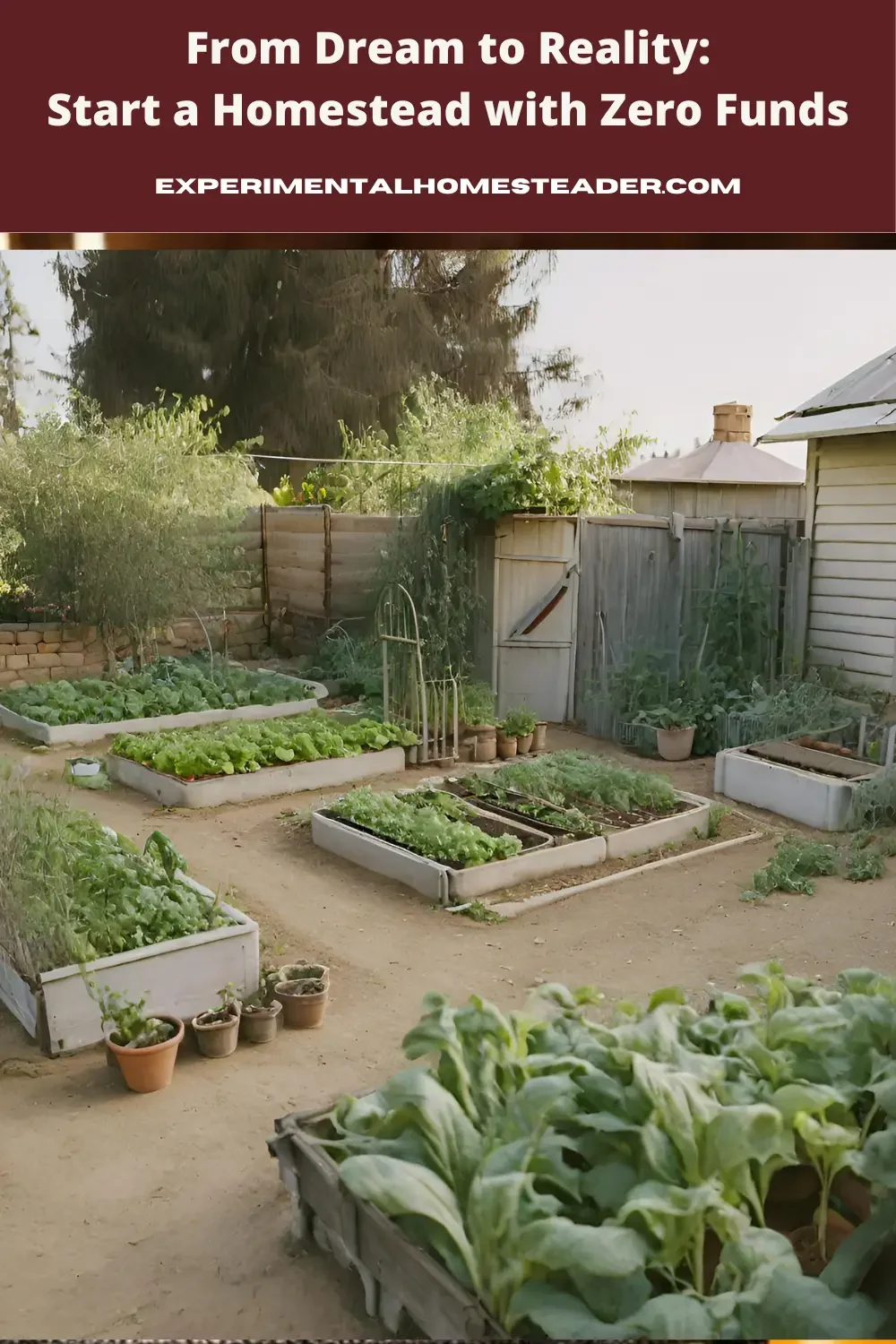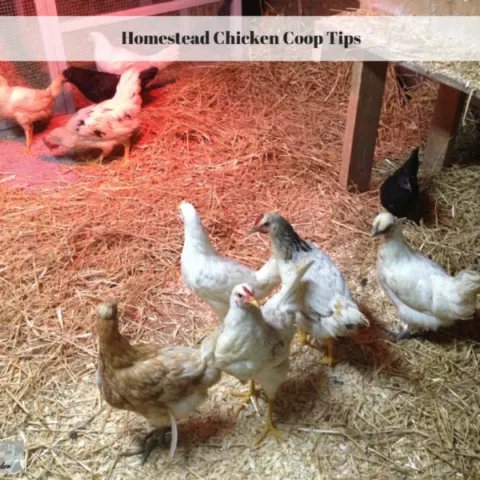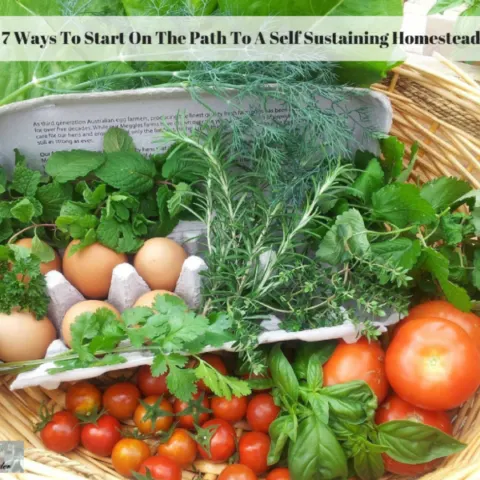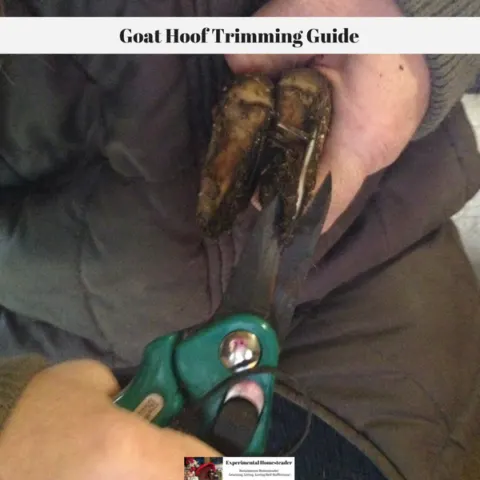Have you ever wondered how to start a homestead with zero funds?
Embarking on the journey of starting a homestead is a dream for many, driven by a desire for a self-sustaining lifestyle and the pure satisfaction of living off the land.
However, for those facing the challenge of beginning this adventure with zero funds, the dream might seem like an elusive fantasy.
Yet, financial constraints are not insurmountable hurdles.
The key lies in leveraging ingenuity and the wealth of knowledge available on alternative paths to land ownership, developing a suite of versatile skills, and embracing a culture of resourcefulness.
In this post, we'll shed light on practical strategies and creative approaches for initiating a fruitful homestead from the ground up.
There is no need to wait for a windfall to unlock the gateways to self-reliance; all you need is determination and a willingness to explore unconventional paths to homesteading success.
Let's uncover practical steps to turn that dream into your very own self-sufficient haven.
Unlocking Your Dream Homestead: Legal Ways to Secure Land Without Breaking the Bank
Are you dreaming of countryside sunsets and hand-plucked veggies right from your backyard?
For those eager to kickstart their homesteading journey but dealing with a budget on the lean side, worry not!
There are indeed legal avenues to obtain land without dropping a dime, and here's how to tap into that wholesome homesteading life without the financial weight.
Look Out for Unwanted Land
Ever dreamt of your own homestead but feel the pinch in your pocket?
No worries!
There's a treasure trove of opportunities waiting for you, and it might be as simple as keeping an eye out for unwanted land.
Here's a beginner-friendly guide to turning those dreams into a tangible homestead reality:
- Community Connections: Start by reaching out to your local community. Attend town meetings, join local groups, and strike up conversations with neighbors. Sometimes, people have land they're not using, and a friendly chat could reveal potential opportunities.
- Post on Community Boards: Utilize local community boards, both online and offline. Create a simple and heartfelt post expressing your homesteading aspirations and your search for available land. You'd be surprised how many hidden gems can be unearthed through the power of community connections.
- Ask Friends and Family: Don't forget to tap into your personal network. Friends and family might know of someone looking to part ways with unused land. Casual conversations during family gatherings or get-togethers can be the gateway to unexpected homesteading possibilities.
- Local Newspapers and Bulletins: Check out local newspapers and community bulletins. Some landowners may prefer traditional methods of communication, and you might find leads in these publications.
- Offer Solutions: When approaching someone with unused land, be ready to offer solutions. Many times, landowners are hesitant due to potential tax burdens. Be prepared to discuss ways to alleviate these concerns, such as proposing a mutually beneficial exchange or agreement.
Remember, the key is to be proactive and open to conversations.
Homesteading dreams can often find fertile ground in unexpected places.
So, put on your explorer hat, initiate those conversations, and who knows, you might just be on your way to homestead gold!
Land Leasing: Low-Cost Long-Term
Leasing land can be a fantastic gateway to realizing your homesteading dreams, even if the upfront cost is a consideration.
While it might not be free, the beauty lies in its cost-efficiency for starting a homestead.
Dive into negotiations with an open mind, as some landowners are surprisingly open to creative arrangements.
Consider the potential of trading goods or services in lieu of monetary payments.
This opens a realm of possibilities; perhaps your knack for fixing farm equipment or your adept gardening skills could become your currency for securing land use.
It's a symbiotic relationship where both parties benefit – you get access to the land, and the landowner receives valuable services or products.
Approach these discussions with a clear understanding of your own skills and what you can bring to the table.
The key is flexibility and a willingness to explore unconventional agreements that pave the way for your homesteading journey without breaking the bank.
In the world of land leasing, a bit of negotiation and a dash of creativity can go a long way in making your homestead dreams a reality.
Volunteering and Work Exchange
Have you ever dreamt of turning your sweat equity into a homestead?
Volunteering and work exchange programs can make that dream a reality without breaking the bank.
Here's a comprehensive guide to navigating this budget-friendly avenue:
1. WWOOF and Beyond: Explore programs like World Wide Opportunities on Organic Farms (WWOOF), they are known for connecting volunteers with organic farms globally. It's a treasure trove for budding homesteaders. But don't stop there, look beyond WWOOF; there are various organizations connecting volunteers with opportunities to exchange labor for land use.
2. Skills Exchange: Assess your skills and see how they can contribute to a homestead. Whether it's carpentry, animal care, or gardening, your expertise can be a valuable asset in exchange for a piece of land to cultivate.
3. Local Community Outreach: Check with local farmers and community organizations. Sometimes, they're looking for extra hands during busy seasons. Offer your assistance, express your homesteading aspirations, and you might find a mutually beneficial arrangement.
4. Apprenticeships: Some experienced homesteaders offer apprenticeships. This hands-on learning experience not only equips you with valuable skills but also provides an opportunity to work towards your own homesteading goals.
5. Be Open to Learning: Embrace the learning curve. Volunteering on a homestead allows you to absorb invaluable knowledge about sustainable practices, animal husbandry, and the day-to-day realities of homesteading.
By volunteering your time and skills, you're not just gaining access to a piece of earth; you're immersing yourself in the homesteading lifestyle regardless of where you live.
It's a win-win – you contribute, you learn, and you inch closer to establishing your own homestead without a hefty price tag.
Property in Revitalization Areas
Are you dreaming of a homestead in a vibrant community?
Some towns might just have the perfect opportunity for you.
Many offer free lots in areas undergoing revitalization, eagerly seeking individuals who can infuse energy and community spirit.
Here's a beginner-friendly guide to tapping into this exciting prospect:
- Local Government Resources: Check with your local town hall or city offices. Inquire about revitalization initiatives and ask if there are available lots for aspiring homesteaders.
- Community Meetings: Attend town meetings or community gatherings where these opportunities may be discussed. Local residents often share valuable information about upcoming projects and available lots.
- Online Platforms: Explore community forums or websites dedicated to local news and events. Sometimes, these platforms are buzzing with discussions about revitalization projects and the potential for free lots.
- Connect with Local Realtors: Realtors often have insights into town development plans. Reach out to local real estate agents and express your interest in homesteading. They may guide you to available opportunities.
Remember, while these opportunities sound enticing, they often come with requirements.
Ensure you can commit to building a home within the specified timeframe and actively contributing to the community's improvement.
It's not just about securing a piece of land; it's about becoming an integral part of a revitalized community.
Homestead Acts Still in Place
A few places in the United States still operate under Homestead Acts where you can claim land.
States like Alaska have specific stipulations, and while it's not as simple as the old 'plant a flag and call it yours,' investigate these opportunities with a keen eye for detail and regulation.
Remember, anything that’s free comes with its own cost, whether it's time, commitment, or sweat equity - but these are the currencies of the heart when building a dream homestead.
Make sure to check all legalities, comply with regulations and respect the land and the community you’re entering.
It's not just about securing a piece of land; it's about sowing the seeds of a fulfilling, community-focused life.
And there you have it, homesteading hopefuls!
With a pinch of creativity, a dash of goodwill, and a whole lot of determination, you'll be digging into your homegrown carrots in no time without the financial burden.
Earning Income with Homestead Skills
Embarking on the homesteading journey is about more than just getting back to the land—it's about cultivating skills that not only serve the family and the homestead but also potentially add streams of income.
Many of us have discovered that transforming passions into profit isn’t just a dream; it’s entirely feasible with a bit of ingenuity and hard work.
So grab your notebook and let's dive into some skills that can help turn your homestead into a thriving sanctuary that also pays the bills!
- Sustainable Gardening and Farming - It’s time to let those green thumbs bring in the greenbacks. Whether it’s a vegetable garden, herb plots, or a small orchard, the fruits of your labor can be sold at local farmers' markets, to restaurants, or through community-supported agriculture (CSA) subscriptions. Specialize in organic or heirloom varieties to set yourself apart, and consider offering gardening classes right from your bountiful backyard.
- Preservation & Value-added Products - From the garden to the pantry, canning, drying, and fermenting are skills that extend the bounty throughout the year. Jams, pickles, and sauces are always popular, and offering workshops on preserving techniques can be an additional source of income. Packaging these goodies beautifully can transform them into sought-after artisanal products. Just be sure to check into the legal requirements with your local health department for these items before investing your time and money creating them.
- Animal Husbandry - If your homestead has room, raising chickens, goats, or bees can be more than just a way to provide food for your family. Fresh eggs, homemade cheeses, and local honey have significant market appeal. Not only can you sell these goods, but you can also offer workshops on raising backyard chickens or introductory courses to beekeeping, sharing expertise with neighbors and community members interested in starting their own mini-farms.
- Crafting and Handmade Goods - Craftsmanship never goes out of style. Handwoven baskets, knitted scarves, or homemade soaps can create a robust income when sold online or at craft fairs. Hosting crafting workshops can also foster community and teach valuable skills to others.
- Agrotourism - Invite others to experience the tranquil life with a farm-stay or homestead tour. This can range from simple overnight camping to more intricate workshops like farm-to-table cooking classes, where guests learn about the journey of food from soil to plate.
- Online Content Creation - Just as we share our passion for homesteading with you, the opportunity to create a blog, YouTube channel, or podcast sharing the everyday adventures of homesteading life can resonate with others. Monetizing through ads, sponsored content, or affiliate marketing can become a substantial part of your livelihood.
- Educational Workshops and Classes - Leverage knowledge in various areas like carpentry, green energy, or natural medicine by offering classes. Teaching others how to live more sustainably or to DIY their home improvements can foster community and provide a stable source of income.
- Handyman Services and Carpentry - The DIY skills learned on a homestead translate well into services that can be offered to neighbors. Whether it’s building chicken coops for others or helping with minor home repairs, these skills are always in demand.
By integrating income-generating skills, a homestead can support its own growth and stability while also sharing the richness of a more sustainable lifestyle with the larger community.
With each skill honed and every service offered, remember that the heart of homesteading is in the connection to the land, the family, and the community.
Let these connections guide the journey toward a successful and fulfilling homestead business.
And hey, let's give ourselves a pat on the back for blending traditional living with modern enterprise—it's a win-win for everyone involved!
Embracing Upcycling: A Homesteader's Guide to Resourcefulness
Homesteading is about more than just self-sufficiency—it's a lifestyle that harmonizes with the rhythms of the earth, weaving sustainability into the fabric of everyday life.
As keepers of our own little slice of heaven, we constantly seek ways to reduce waste, repurpose materials, and enhance our homes and land without breaking the bank.
Upcycling and resourcefulness are the golden threads in this pursuit, offering a fusion of creativity, economy, and eco-conscious living.
- Upcycling: A FreshTake on Household Treasures - Have you ever stumbled upon a quirky or dated piece of furniture roadside, or perhaps relegated to the back of your own shed? Before dismissing these items as passé, imagine their potential. Upcycling is about seeing the beauty beneath the surface wear—transforming an old dresser into a chic farmhouse sideboard or turning wooden pallets into a rustic patio set. This isn't just about saving money; it's about infusing your homestead with character and stories. The process brings a sense of accomplishment and a unique aesthetic that can’t be bought in any store.
- Resourcefulness in Homesteading Materials - The journey from an idea to a finished project often starts with materials. Instead of purchasing new, consider the trove of materials that might already be on your property. If there’s an old barn or shed, salvaging wood for new construction projects not only preserves history but also saves on costs. Old windows and doors can be repurposed into greenhouses or cold frames for year-round gardening magic.
- Creating a Circular Economy - In homesteading, every item has a lifecycle, and our choices define how long and significant that life is. By repurposing clothing into quilts or rags, or reusing jars and containers for storage solutions, we’re closing the loop on waste. This circular economy strengthens our homes by maximizing the value we extract from resources while minimizing the trash we contribute to landfills.
- Creative Conservation - Water is a precious commodity on any homestead. Old bathtubs and sinks can become whimsical planters or mini-ponds, supporting ecosystem diversity and conserving water through strategic placement in your garden. Rain barrels hooked up to downspouts ensure that not a drop goes to waste, channeling the natural water cycle to our benefit.
- Bartering and Sharing Economy - Why purchase what you can trade for? Homesteaders are masters of the barter system, and resourcefulness often translates into the currency of goods and skills. Swapping a basket of fresh produce for a neighbor’s handmade pottery not only supports local economies but also forges stronger community bonds.
- Enduring Values for the Next Generation - In crafting a life on the homestead, one of the most profound lessons we pass along to our children is the value of resourcefulness. Through upcycling and thoughtful use of resources, we teach them about ingenuity, creativity, and the importance of respecting the environment. These lessons of sustainability and conservation are the true treasures we leave behind, ensuring that each generation nurtures the land just a bit more tenderly than the last.
The heartbeat of a thriving homestead lies not in abundance but in the clever and mindful use of what's already in our hands.
By embracing upcycling and resourcefulness, we aren't just making do—we're crafting a legacy of warmth, wisdom, and wonder in the place we call home.
Cultivating a Legacy: Nurturing Homesteading Dreams Beyond Financial Barriers
Embarking on the journey of establishing a homestead with little to no financial backing is a testament to the human spirit's resilience and adaptability.
Through a commitment to learning, keen resourcefulness, and a willingness to embrace community and collaborative efforts, the seeds of a sustainable and fulfilling homesteading life can be sown.
Homestead Lifestyle
Discover the joys and challenges of homesteading with our Homestead Lifestyle collection of posts. From growing your own food and raising animals to crafting DIY solutions and embracing sustainable living, these articles provide practical tips, inspiration, and insights to help you build a more self-reliant life. Whether you're starting small in your backyard or managing a larger homestead, you'll find everything you need to simplify, thrive, and reconnect with nature. Explore topics like gardening, food preservation, animal husbandry, and more to create a homestead lifestyle that works for you.
Cooking By Kerosene Lamp
There are many reasons you might find yourself cooking by kerosene lamp. Kerosene lamps have advantages over candles.
Homesteading Recipe Sharing: Connect, Preserve, and Inspire Through Your Favorite Recipes
Explore the significance of homesteading recipe sharing: from preserving traditions to connecting with others and sparking new ideas.
Diligence & Your First Homestead Property: An Essential Guide
Make your first homestead property a reality. Learn why diligence and a personal visit to the property are the foundations of success
Sow, Grow, and Glow: The Journey of a 1 Acre Self Sustaining Homestead
Create a thriving, 1 acre self sustaining homestead. Learn how to plan, design, grow food, and more with this guide!
Make Your Own Maple Syrup with the Maple Tapping Tree Kit
Discover the joy of maple tapping with the Maple Tapping Tree Kit. Elevate your homesteading with this practical kit.
Mastering the Art of Homesteading: Skills and Crafts
Explore the world of homesteading skills and crafts, from self-sufficiency to survival, and discover the art of self-reliant living.
DIY Guide: Building Your Goat Milk Stand
This guide will ensure you create a functional and comfortable milking platform for your goats.
Homestead Chicken Coop Tips
Check out these basic chicken coop ideas to help you get your homestead chicken coop set up right the first time and keep your chickens safe. #homesteadchickencoop #chickencoop #chickencoopideas #backyardchickens
8 Things To Consider For A Survival Homesteading Property
If you're considering a survival homesteading property, here are the 8 factors to help you determine if it's right for your household.
Thriving Through Self-Sufficiency: A Journey to a Balanced Life
Learn how to thrive through self-sufficiency: slow down, live intentionally, and find balance for a healthier and more sustainable lifestyle.
Quick DIY Tips for Self-Sufficiency: Simple Steps To Start Today
Discover quick DIY tips for self-sufficiency, from gardening to food preservation, to build confidence and live sustainably today.
Preserving Herbs For Winter Use eCourse
Do you love fresh herbs but wonder if there is an easy way to preserve them for the winter?
Do you seek other ways to use herbs other than just as a seasoning on food?
There are so many ways to preserve herbs for winter use – from various methods of drying them to freezing them, but it doesn’t end there.
Some of the best ways to preserve herbs in right in the foods you would normally incorporate herbs into – pre-made seasonings, teas, butter or oil.
Then this is the course for you!
What You Will Learn In This Course:
Hang herbs to dry
Use a hanging herb dryer
Dry herbs on a window screen dryer
Dry herbs in a dehydrator
Dry herbs in an oven
Dry herbs in a microwave
Freeze herbs whole
Make herb ice cubes
Add fresh herbs to freezer meals
Add herbs to canned sauces
Preserve herbs in vinegar
Preserve herbs in oil
Preserve herbs in butter
Preserve herbs in salt or sugar
Make pre-made seasonings
Make herbal tea
Make herb jelly (plus tips on how to use these)
Harley-Davidson Motorcycle History How Legendary Harley Motorcycles Originated & Developed, Since 1903
The Harley-Davidson Company has a long history here in the United States. Learn how they originated and how they have been used.










































